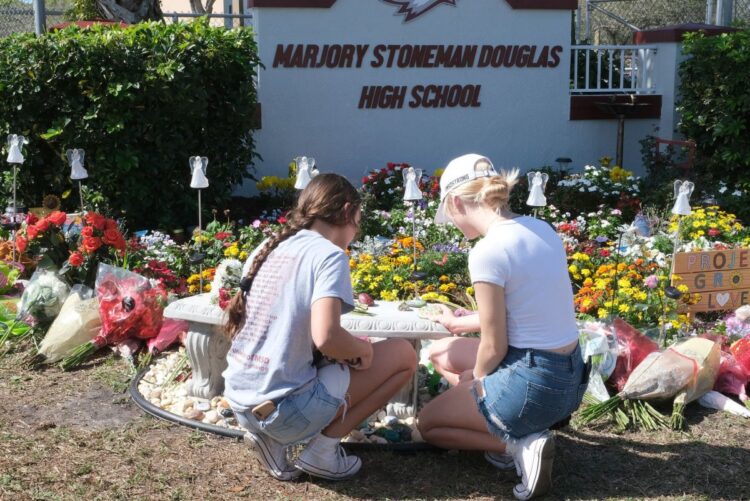By Aaron Miller-
The US Department of Justice has reached a multimillion-dollar settlement with the families of most of those killed or wounded in the 2018 Florida high school massacre, over the FBI’s failure to stop the gunman even though it had received information he intended to attack.
Attorneys for 16 of the 17 killed at the February 2018 Marjory Stoneman Douglas high school in Parkland and some of those wounded previously announced in November that they had reached a monetary settlement with the government over the FBI’s failure to investigate a tip it received about a month before the massacre. The 17th family chose not to sue.
The government’s announcement late Wednesday said the settlement addresses 40 cases connected to the shooting for $127.5 million, but does not amount to an admission of fault by the United States, according to a DoJ press statement.
The agreement settles all 40 of the civil cases stemming from the February 2018 shooting at Marjory Stoneman Douglas High School that left 17 people dead and 17 wounded, the department said in a statement.
“The settlement does not amount to an admission of fault by the United States,” it said.
Survivors of the shooting and the families of 16 of the people killed had sued the government for damages.
The shooting was the worst school massacre in the United States since the horror at Sandy Hook Elementary School in Newtown, Connecticut in 2012, which left 26 dead.
Nikolas Cruz, a former student at Stoneman Douglas, pleaded guilty in October 2021 to 17 counts of murder and 17 counts of attempted murder.
Expelled from the school for disciplinary reasons, Cruz was known to be fixated on firearms — and had reportedly been identified as a potential threat to his classmates.
About five weeks before the 14 February 2018 shooting, an FBI tip line received a call saying a former Stoneman Douglas student, Nikolas Cruz, had bought guns and planned to “slip into a school and start shooting the place up”.
“I know he’s going to explode,” the caller told the FBI.
But that information was never forwarded to the FBI’s south Florida office and Cruz was never contacted. He had been expelled from the school a year earlier and had a long history of emotional and behavioral problems.
Cruz, 23, pleaded guilty last October to 17 counts of first-degree murder. He will receive either a death sentence or life in prison after a penalty trial that is scheduled to start in April.
In the aftermath of the shooting, Parkland student activists formed March for Our Lives, a group that rallied hundreds of thousands around the country for tighter gun laws, including a nationally televised march in Washington.
Parents also made impassioned pleas for accountability and policies aimed at halting gun violence.
A state investigation found numerous security lapses not just at Stoneman Douglas but at schools statewide. The shooting led to a state law that requires all Florida public schools to have an armed guard on campus during class hours.
The shooting revived the huge national debate around gun laws, with sharp divisions between those arguing for more lax laws to allow more people to arm themselves and those arguing that laws should be passed to prevent someone like Cruz having access to weapons in the first place.
A law was passed in Republican-controlled Florida allowing school teachers to carry guns to work, but many schools rejected this in practice.




